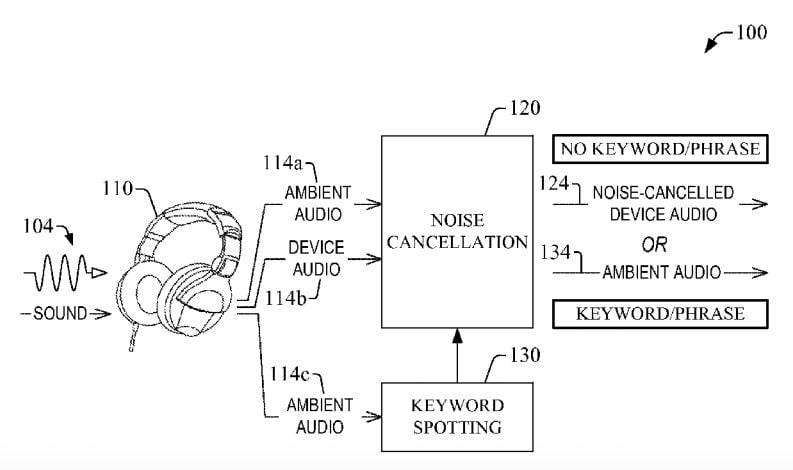Amazon could make noise-cancelling headphones that know when to let sounds in
Noise-cancelling headphones are great for blocking out the din of airplanes and trains, but they also isolate listeners from noises they might want, or need, to hear—the siren of an ambulance, a car honking, or someone calling out their name. Amazon could be working on technology to change that.


Noise-cancelling headphones are great for blocking out the din of airplanes and trains, but they also isolate listeners from noises they might want, or need, to hear—the siren of an ambulance, a car honking, or someone calling out their name. Amazon could be working on technology to change that.
The e-commerce giant was recently awarded a patent for smart headphones that know when to turn noise-cancelling on and off. According to the patent, the technology would analyze the sounds and selectively allow them in. Amazon’s design states that when a human speaker utters a specific keyword or phrase, such as “Hey Ben!” the device will automatically suspend audio cancellation. It remains unclear whether the headphones will have pre-installed keywords, if users will choose from a list, or whether it is a fully customizable feature. Amazon did not respond immediately.
So far, the closest the industry has gotten to installing such a feature are manual pass-through buttons, where users can trigger a switch to turn noise cancellation on or off. With Amazon’s technology, users will likely have the option to turn noise-cancellation back on through audio or non-audio controls.

The company doesn’t make any headphones right now, but it has ventured into keyword detection with Amazon Echo, a wireless speaker and the physical housing for the company’s voice-controlled virtual assistant Alexa. One of the engineers who filed the patent has previously worked on the Alexa Information team, CNET reported. Just as Echo’s error rate has been declining with increased use, the makers want to hone the smart headphones by analyzing user reactions. For example, if the user turns “noise-cancellation back on nearly immediately after suspension,” it “may indicate a false-positive detection of a predetermined keyword” and the device will need to be improved upon.
Serious injuries, including fatalities, amongst all headphone-donning pedestrians tripled from 2004 to 2012, according to a University of Maryland study. Noise-cancelling ones are potentially more dangerous since they make users even less aware of their surroundings. Putting headphones in charge of turning sounds on and off could improve safety, provided the device is tuned to listen for the correct signals.
Although patented technologies don’t always turn into real products, these headphones have the potential to be useful if they ever hit the shelves.